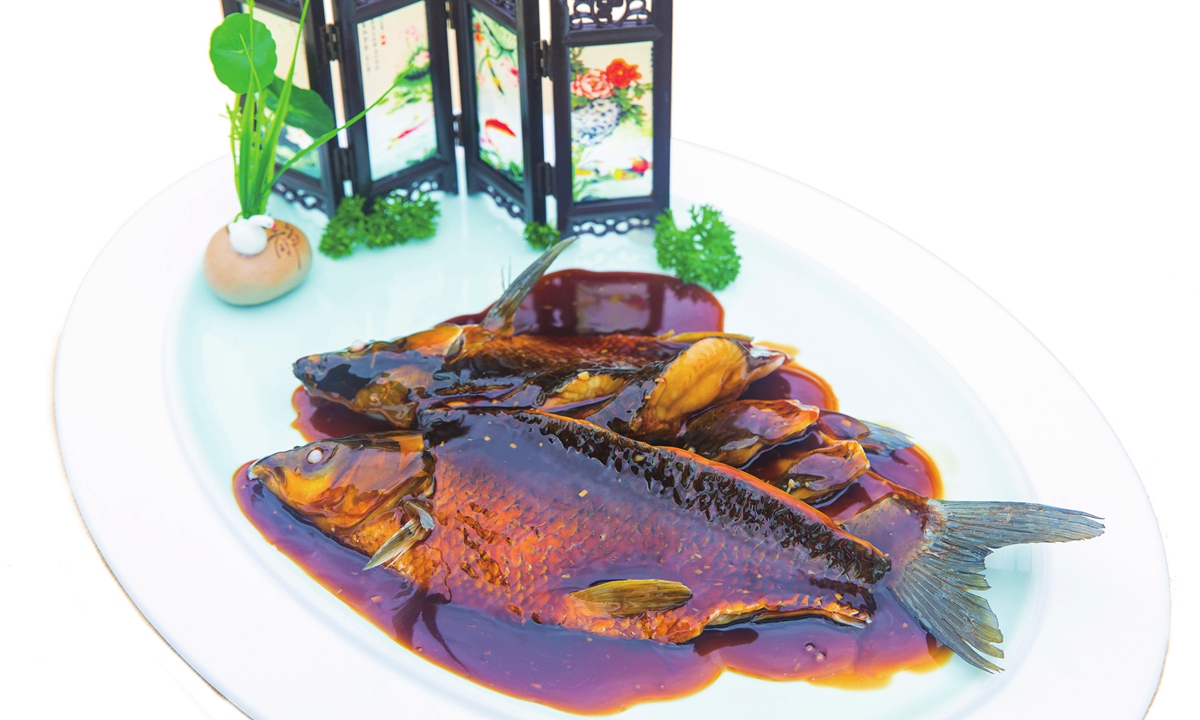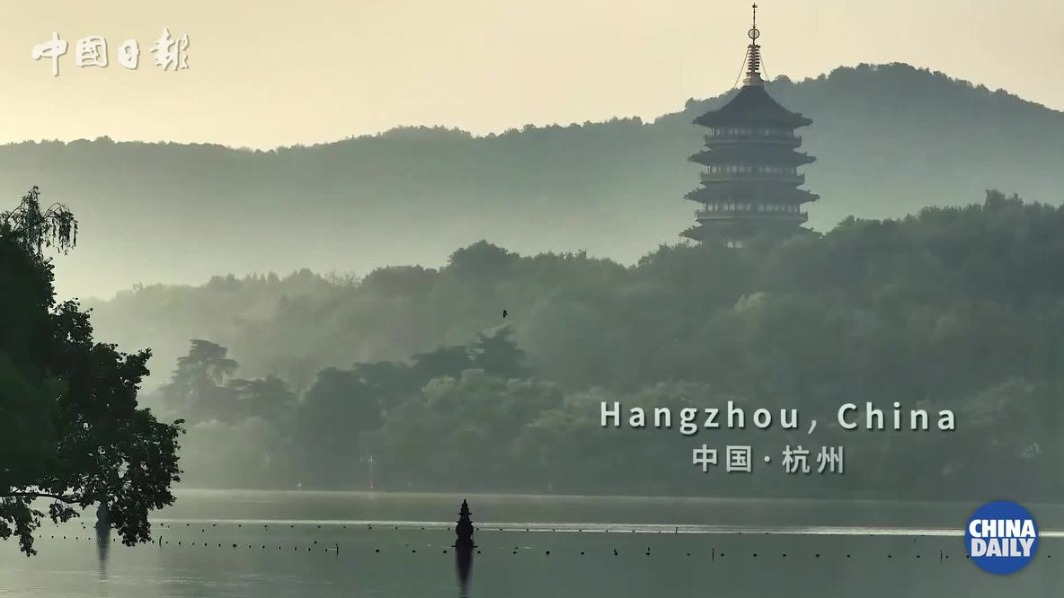is hangzhou truly a 'food desert of china?'

west lake vinegar fish photo: vcg
the recently concluded 19th asian games held in hangzhou not only illuminated the city's historic legacy but also brought a culinary debate to the spotlight once again. while netizens engaged in conversations about the sporting events, the city's picturesque landscape, and its rich cultural heritage, the conversation often turned to the food, or more specifically, the contentious reputation of hangzhou's cuisine.
china is celebrated globally for its rich and diverse culinary traditions, and hangzhou, as the birthplace of zhejiang cuisine, occupies a special place in the nation's gastronomic heritage. the city boasts famous dishes like west lake fish in vinegar sauce, beggar's chicken and dongpo pork.
however, in recent times, hangzhou has been playfully referred to as the "desert of china's delicious food," a nod to the perception that local dishes are either unappetizing or fewer in choices.
on chinese social media platforms, debates about the taste of hangzhou's cuisine are commonplace. some netizens argue that hangzhou's dishes are known for their delicate and mild flavors, emphasizing the delicate taste of ingredients. they believe that hangzhou's cuisine, though distinct from northern chinese cuisines, which are characterized by strong flavors, is by no means less appetizing.
in contrast, others claim that hangzhou's dishes lack distinctiveness, describing them as bland, with particular controversy aimed at one of the city's most famous dishes, west lake vinegar fish, for its peculiar and unappealing taste.
so why has the locally cherished west lake vinegar fish, a dish that has been inherited through thousands of years, faced criticism? and is hangzhou the country's "culinary desert?"
a long history
west lake vinegar fish, can be traced back to the song dynasty (960-1279). during that era, the abundant grass carp in the surrounding west lake ponds inspired locals to devise a method for preserving fish by marinating it in vinegar to ward off any fishy odors, thus giving birth to the renowned west lake vinegar fish.
this iconic dish held such esteem that it was included to the banquet in 1972 when then chinese premier zhou enlai met with us president richard nixon in hangzhou.
west lake vinegar fish is celebrated for its tender and fresh fish meat, harmoniously balanced with a sweet and sour sauce. the famous dish has been a must-eat dish for many visitors, despite some of them expressing their disappointment, describing it as having "a lack of flavor," "a hint of fishiness," "an unusual combination of sweet and sour," and "an overwhelming sugary and vinegary taste" etc.
in reality, making a delectable and authentic west lake vinegar fish demands strict preparation standards and culinary finesse. typically, this dish calls for the use of freshwater fish, frequently grass carp. while the ingredients themselves are not expensive, the challenge lies in the meticulous handling of the fish, which must be killed and marinated fresh to maintain its delicate qualities.
meticulous preparation essentially makes it nearly impossible to satisfy a high demand from consumers in a short time.
a deviation from the authentic preparation methods has partly contributed to the dish's negative reputation. to cater to higher demand, many local restaurants have relaxed these requirements, opting for pre-marinated fish, which is not as fresh and often tends to be saltier. to achieve a specific taste, more vinegar and sugar are added, which is why some diners found this dish to be a blend of "fishy, overly salty, sweet, and sour."
controversy over mild flavor
apart from the west lake vinegar fish, hangzhou's local cuisine also often faces controversy for its perceived mild flavors, particularly in comparison to the bold and spicy dishes of other cuisines such as those from sichuan and hunan provinces. in a nation where fiery and heavily seasoned foods like hotpot and barbeque are ubiquitous, hangzhou's emphasis on fresh, natural flavors could appear out of step with contemporary culinary preferences.
strongly flavored cuisine is widely popular, partly due to changing tastes among people. with high levels of stress in daily life, there's a pursuit of intense flavors, quick service, and sensory excitement. as a result, milder cuisines like hangzhou's may not enjoy the same nationwide popularity as hotpot and barbecue.
however, advocates for hangzhou's cuisine argue that mild taste should not be equated with unpalatable taste. to them, spiciness is not the sole criterion for judging a dish's appeal. enjoying a long history, the authentic hangzhou cuisine includes not only the west lake fish in vinegar sauce, but also longjing tea shrimp, sister song's fish soup, braised bamboo shoots, which all showcase the city's culinary finesse and deserve a credit.
some visitors to hangzhou shared diverse opinions about its cuisine. wang, 27, a traveler from east china's anhui province, has visited hangzhou twice and enjoyed its local cuisine, especially its subtle flavors. wang shared with the global times that she visited local specialty restaurants and chain hangzhou restaurants, savoring hangzhou's delicacies, including the west lake vinegar fish, which she described as "both sweet and sour, very appetizing."
as culinary debates continue to sizzle on social media platforms, hangzhou's reputation as a culinary destination remains a topic of discussion. chinese cuisine is celebrated for its diversity, offering a spectrum of flavors from fiery spiciness to mild subtlety. embracing the variety of regional tastes and savoring the culinary richness of different locales add charm of chinese cuisine.
-
'nice' to meet you, hangzhou
may 6, 2024

